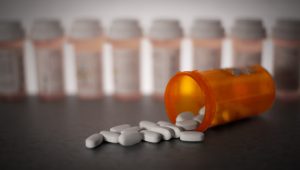 Fentanyl is a type of synthetic opioid used in pharmaceutical products to manage pain. It is also one of the main contributors to the ongoing epidemic of opioid overdose deaths, which have accounted for nearly 75% of all drug overdose deaths in recent years.
Fentanyl is a type of synthetic opioid used in pharmaceutical products to manage pain. It is also one of the main contributors to the ongoing epidemic of opioid overdose deaths, which have accounted for nearly 75% of all drug overdose deaths in recent years.
Drug dealers often sell fentanyl mixed with other drugs such as heroin, methamphetamine, and MDMA, as it is a cheaper ingredient for producing a stronger high compared to other substances. This can make an overdose more likely, as many buyers may not be aware that fentanyl is present as an additive in their drugs and may not be able to physically handle its strong effects.
Fentanyl is also approved as a legitimate prescription treatment for severe pain, particularly due to late-stage cancer. Its effects can be as much as 100 times stronger than morphine, another drug frequently used for pain management, and may include extreme happiness, sedation, breathing problems, and unconsciousness.
As a result of its potency, fentanyl can be very addictive, potentially resulting in dependency even for people who have been prescribed this drug. If a person becomes dependent on fentanyl and stops taking it, they may experience withdrawal symptoms such as sleep problems, severe cravings, diarrhea and vomiting, muscle and bone pain, and cold flashes.
If addiction occurs, it can be treated through a combination of medication and behavioral therapy. Some of the most frequently-used medications for treating fentanyl addiction include methadone (which eases withdrawal symptoms and cravings), buprenorphine (a partial agonist which creates similar effects as methadone), and naltrexone (which blocks the effects of fentanyl by preventing it from attaching to opioid receptors).
In the event of a fentanyl overdose, naloxone can block the drug’s effects when administered rapidly, but may require multiple doses. It is typically available as an injectable solution or nasal spray. In New York City, you do not require a prescription to get naloxone. If you have any naloxone, administer it, then immediately dial 911 for emergency medical services.
If you or anyone you know is struggling with fentanyl-related substance abuse problems, Flushing Hospital Medical Center’s Division of Addiction Services can offer a safe place to experience drug withdrawal in our Chemical Dependence Unit and take the first steps toward recovery from addiction in our Reflections treatment program.
To learn more about our Chemical Dependence Unit, please call (718) 670-5693 or (718) 670-5540. For more information about our Reflections program, please call (718) 670-5078.
All content of this newsletter is intended for general information purposes only and is not intended or implied to be a substitute for professional medical advice, diagnosis or treatment. Please consult a medical professional before adopting any of the suggestions on this page. You must never disregard professional medical advice or delay seeking medical treatment based upon any content of this newsletter. PROMPTLY CONSULT YOUR PHYSICIAN OR CALL 911 IF YOU BELIEVE YOU HAVE A MEDICAL EMERGENCY.
